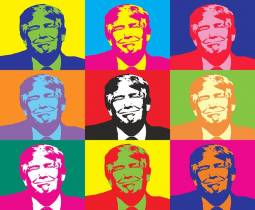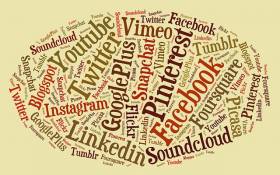
A few days ago, I wrote an article with no knowledge of the person I was addressing. I congratulated the new president of the United States. I stand by that article, still.
But I am shocked. I did not see the election going the way it did. All that talk about there being some media bias was true. Because the news channels I watched seemed to do a collective double-take as the night went on into the next day. Around eleven, Eastern Standard Time, Florida time, everyone knew how it would play out, Trump trumping.
There was still some swinging left for a little while, but as I was still awake at 4 a.m., I sat in stunned silence as the confirmation was, well, confirmed. I woke up to so much input and congratulations and fear and outrage and... wow.
Let me get a little personal, which is not something I usually do. I am from (though not born in) Chicago, Illinois. A vastly Democrat state. I have a lot of friends and most of my family in that state—and some, perhaps all, wanted Hillary. My opinions on who I wanted were mixed enough I did not side, but I expected her to win. Even after talking with quite a few Republicans here in Clearwater.
But, well, you know the score. And I am still numb, curious to see what’s about to happen. What will happen. Regardless of President Trump’s actual official actions going forward, he did promote some unacceptable views and opinions of minorities and women.
And I hope, as the president, he does not do that anymore. I hope he did it to just draw attention. And now plans to give people the honor and respect and empathy that the president should to all Americans, regardless of race and gender and sexuality.
And some seem to think so, because they are happy with him. I watch my social media fill with cheer. Though, at the same time, I watch the YouTube community—which at least from what I’ve observed is more pro-Hillary—all grow ever angrier at the prospect. Or despaired. Or incensed about the Electoral College deciding this one.
And, I guess, in the wake of it, I have only a few things to say, to promote. To tell Clearwater citizens, and all people who may find this article floating in the internet’s stream, to stay calm. Don’t divide so hard on each other. Understand about half of the country you live in wanted this to happen. That’s our government, and I know it can feel awful sometimes, but it runs the way it runs. Say what you wish about the Electoral College, but it’s the current system set in place to decide our new leader.
You can promote change, people always do. We should. Until we have a perfect world. And that doesn’t stop just because someone else became president than who you thought would.
I say this tentatively, aware my words may become a harsh echo in the next four years, but I think we’ll be okay. We still have a say in what happens to our country. He is only one-third of the political checks and balances. We can still make things better.
And maybe he will make things better. Every president is a new chance for something that we never expected.
Promote hope. Promote tolerance. Promote not giving in to fear and outrage and all the other dark emotions stirred in this first week.
That’s the best thing we can do.
---
If you liked this article, you can read more of Brandon Scott’s work over at The Hive, or on his website: www.coolerbs.com





















